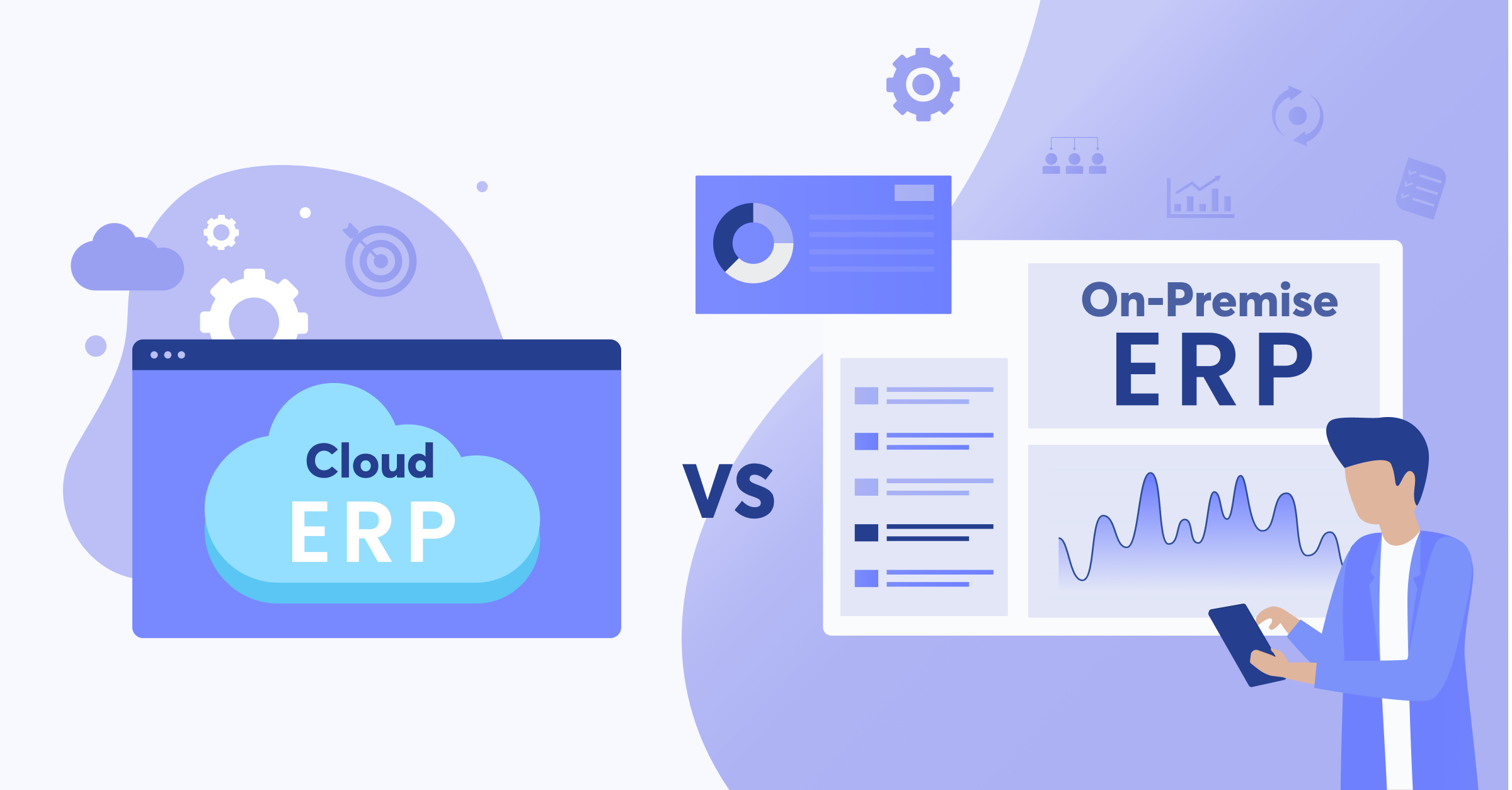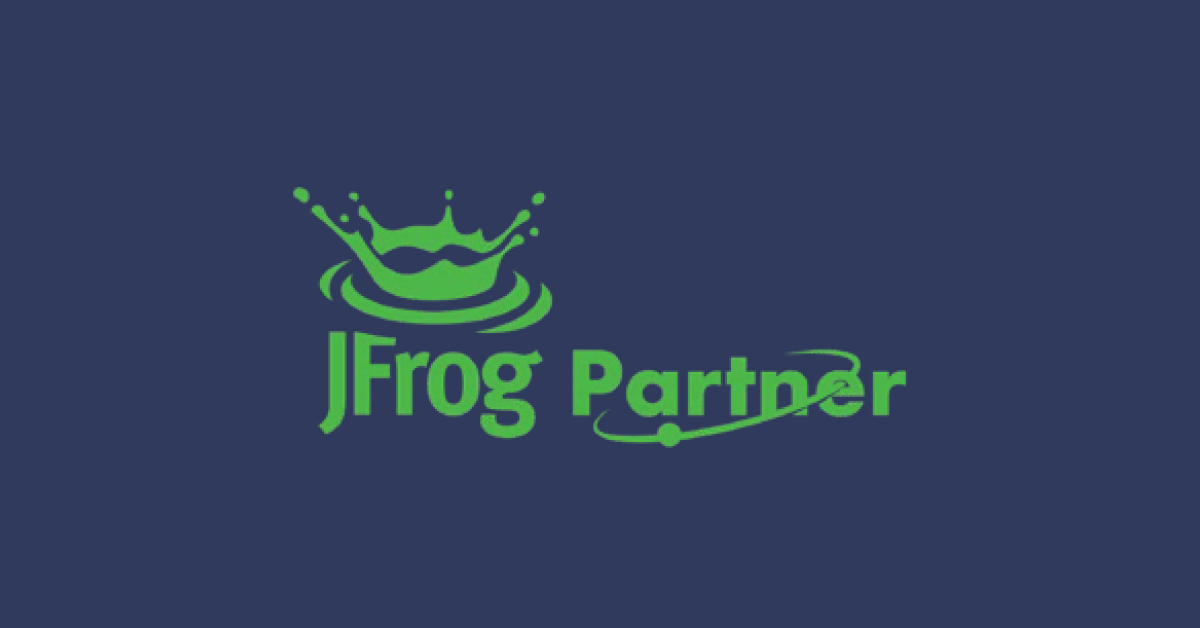Successful businesses adopt emerging technology to gain a competitive edge. Business executives need to decide whether to retain the old on-premise IT systems or migrate to the cloud.
Productivity is a vital aspect of any business. Enhancing productivity leads to better performance and a competitive edge.
Enterprise resource planning (ERP) significantly contributes to productivity. The management software has in-built tools to enhance and automate vital business processes.
If you are debating whether to migrate to the cloud or ERP software, read on for the pros and cons of cloud ERP vs. On-Premise ERP to help you decide.
Cloud-Based ERP vs. On-Premise ERP: What Are the Differences?
There’s one main difference between on-premise and cloud ERP. On-premise ERP remains on physical hardware and servers, and the software can also be on a private cloud. The company manages the cloud, so the IT team is responsible for maintenance. Cloud ERPs, on the other hand, is hosted remotely by a cloud vendor and accessible to a user via a web browser.
The software is available as software-as-a-service (SaaS), and the vendor handles the maintenance. Regardless of the location, users can work if there’s a stable internet connection.
What to Consider When Selecting between Cloud ERP and On-Premise
Ownership Costs
On-premise ERP systems require significant upfront and continuous investment. The business needs to buy and manage the servers, hardware, facilities, and software.
If the IT team is small, the company may have to invest in additional IT personnel and training processes. The department also requires an extra budget to keep the system running.
Upgrading the ERP system requires the IT team to redeploy it on various computers. They also have to re-implement the previous integrations and customizations.
Cloud-based ERP requires significantly lower initial investments. Once you customize the software, users can access it from their computers via the internet.
The cloud ERP vendor is responsible for hosting and maintaining the IT infrastructure. For upgrades, the enhancements integrate seamlessly without affecting the previous customizations.
IT teams can focus resources on growth and innovations that benefit the business. Cloud ERP also has standard subscription models, making budgeting and cash flow management easier.
System Updates and Enhancements
On-site ERP software requires customizations that link to the current software. If you upgrade the software, the previous customizations get erased.
Upgrades make it challenging to redeploy and re-implement future upgrades because the IT team has to start from scratch each time.
On the other hand, cloud ERP solutions undergo continuous upgrades by the vendor. It guarantees that the business operations run on the newest and most advanced software versions. And most importantly, there’s usually no need to re-implement the previous customizations.
Mobility
Although remote access to on-premise ERP systems is possible, you’ll need third-party support for access. With cloud ERP systems, the only requirement is an internet connection. Such a connection ensures mobility, flexibility, and access to resources from any location.
System Accessibility and Performance
Cloud ERP ensures higher performance than on-premise ERP solutions. The software architecture optimizes network performance and the availability of hosted applications.
Cloud-based ERP also ensures optimal performance based on your needs.
Cloud ERP automatically allocates extra resources to manage the spike in high traffic. Such results are challenging to achieve on on-site ERP systems.
Security
Security is among the essential factors to consider. Cloud-based ERP solutions are available as SaaS, so the provider handles security. However, the security level varies based on the provider.
Most cloud providers prioritize data security by complying with SAS 70 and PCI DSS standards. They ensure backup procedures and disaster recovery measures at affordable costs.
On-premise solutions typically offer significant security due to restricted access to the system. However, most cloud-based solutions provide better protection than on-premise systems. For instance, if you compare Oracle ERP cloud vs. on-premise, the security levels are higher on the cloud.
Features and Applications
On-premise ERP solutions have a specific design based on the business needs. Although cloud-based ERP systems have some flexibility, the extent depends on their environment.
On-premises systems provide more options regarding applications and features.
Deployment Speeds
ERP deployment requires strategic planning and adequate time. Cloud ERP requires no extra hardware, which saves on time and resources needed to buy and install IT infrastructure.
With Cloud ERP vs. on-premise ERP, deployments can take up to twelve months on-premise compared to cloud ERP deployments which take three to six months.
Cloud-based ERP systems are scalable, which gives businesses the flexibility to accommodate growth. On-site ERP solutions often require additional hardware to scale and allow access to more people.
Customizations
On-premise ERP systems are customizable but at higher costs and longer periods. It often requires extra hardware and resources, and it can also cause system downtime during the process.
Cloud-based ERP systems are easily customizable at lower costs and in less time.
Pros and Cons of On-premise ERP
Pros
Data Control
ERP systems handle large data volumes with essential information such as business operations. On-premise hosting ensures more control over incoming data and information updates.
Reliability
On-premise ERP systems can function without an internet connection. In case of disconnection, the business operations can continue seamlessly.
Continuous Visibility
On-premise hosting guarantees that all the data remains in the business hardware. IT teams can closely monitor the stored data and system, keeping the management updated on any operational changes.
Absolute Control over Data
On-premise ERP systems often store sensitive information. The business determines where to store the data and you can access the data and what actions they can perform on it.
The IT team can deploy upgrades with the management’s knowledge. This allows better planning to minimize the risks of unexpected downtime.
Enhanced Security
Every organization across all industries should prioritize end-to-end security. Hosting ERP on-premises allows more control over access to the system and sensitive information.
Customization
On-premise ERP systems remain hosted and integrated into the business’ IT infrastructure. This allows for more customization options, and it’s easier to incorporate customized applications.
Cost Efficiency
On-premise ERP requires significant investment upfront. However, businesses with large-scale operations find in-house solutions more cost-effective.
However, it’s essential to remember that the actual cost efficiency of an on-premise ERP system becomes evident in about three to five years.
Cons
Initial Costs
On-premise ERP systems are a business’s capital expenses, but cloud-based systems are operational costs. The upfront costs of acquiring physical hardware such as;
- Servers
- Labor, and
- Training are often too steep for small businesses
Required Skillset
Small businesses often have inadequate financial capabilities to support on-premise systems.
Scalability
On-premise ERP systems can be challenging to scale. They require additional resources for hardware, storage, training, and labor expenses.
Pros and Cons of Cloud ERP
Pros
Lower Start-up Costs
Cloud-based ERP systems are available as monthly or annual subscription services. Since the system is cloud-based, there’s no need to invest in physical hardware.
The cloud-based ERP provider is responsible for system and maintenance costs. The subscription cost includes these expenses, so there’s no extra cost to the business.
The provider also oversees the deployment of upgrades, enhancements, or patches. These processes are continuous and seamless, so there’s minimal downtime.
Scalability
Cloud-based ERP systems offer more flexible options regarding scalability. Once the business purchases the appropriate package, the IT team can customize the system based on specific needs. It saves costs and minimizes the learning curve and implementation period.
Flexibility
Cloud-based ERP systems have automatic backup systems and disaster recovery measures. It helps businesses access the production system and data in natural disasters.
On-premise systems have manual backup systems, which make data transfer more challenging.
Cons
Security
With cloud-based ERP systems, the data remains with a third party responsible for its safety and security. This arrangement can pose a risk for businesses and companies that handle proprietary data.
However, most cloud providers have adequate security measures that often supersede on-premise security.
Reliability
Cloud-based ERP systems are only accessible and operational when there’s an internet connection. Service interruptions due to natural disasters can significantly affect vital business processes. Remote areas with unstable links also experience the same challenge.
Should You Migrate from On-premise to Cloud?
When faced with a choice between Cloud-based ERP vs. on-premise ERP, your decision depends on your needs.
Generally, on-premise solutions ensure better security in data protection but require higher investment. Cloud-based solutions offer more scalability and flexibility, but data remains with a third party.
Cloud ERP also simplifies the management of all business aspects. There are minimal IT expenses, and it’s easier to ensure compliance and security. Streamlining data to one platform enhances the decision-making process. Your IT team can focus on innovation and other essential business aspects.
Team members can use multiple applications and tools for various tasks simultaneously. Businesses can monitor resources, quality control, CRM, HR, and production processes on one platform.
Considering migrating to the cloud?
Sphere Partners is a team of business consultants, software developers, and engineers. We offer consultation services, expert engineering teams on-demand, and custom software development.
We’ll get you set up on implementing enterprise platforms such as;
- Google Cloud
- NetSuite
- Atlassian
- monday.com
- Salesforce
We help clients reach their potential on the cloud with over a decade of experience with various cloud platforms while alleviating any cybersecurity concerns. Get in touch today and tell us about the cloud ERP project you’d like our help with.





